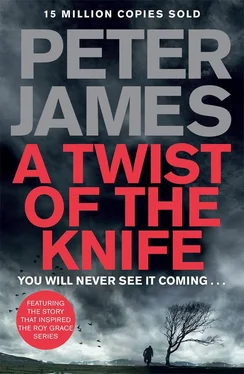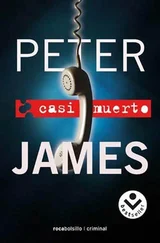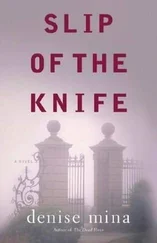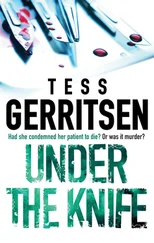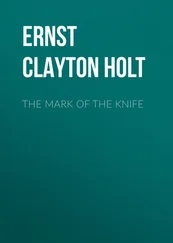Oh God, any moment.
Suddenly he turned and stared hard at her. ‘Oh?’ he said. Then he lifted out the entire top layer of clothes that were covering the first canvas, and laid them on the table. Then he lifted up the canvas, holding it high by the two top corners.
It was an unfinished, unsigned Monet. It depicted a hazy stony bridge over a bleached-out, shimmering river. Its provenance was beyond doubt, catalogued extensively around the globe, and one of the French painter’s most important works. When James Denempont had flown over to Italy to view and value their collection, he had been close to ecstatic when he had seen this particular canvas. He, too, shared the view that it was the original, and was probably the most valuable of all the canvases in their very considerable collection.
The customs official turned to her and stared hard into her eyes. His face was the very picture of cynicism. ‘And what, exactly, is this, Contessa?’
‘I’m having painting lessons,’ she said, putting on her most charming smile. ‘I’m bringing a few pieces to show my sister, who is a very talented artist, how I am progressing. I’m hoping to do some painting while I am in Scotland.’
‘Painting lessons?’
His words hung in the cold air of the shed for some moments. He locked her eyes with his own. Then his inquisitor mask slipped a little and he said, ‘Hmmm.’
She shrugged, and did her best to give him a disarming smile.
He did not respond but instead began to examine the canvas even more carefully, holding it close to his face. As he did so she could feel her legs threatening to buckle. He continued to inspect it for what seemed an eternity. She felt a terrible, deep sinking feeling.
Then, suddenly, to her utter amazement, he placed the canvas back into the case, and began, slowly and carefully, to replace the clothes he had removed. When he had finished he tugged the restraining straps tight, lowered the lid and pressed the catches home. When he had finished he yawned, then turned to her and said, ‘OK, thank you, that’s it, we’re done.’
He helped her put the cases back into the boot, then she climbed back into the driving seat, her hands shaking so much she could barely turn the ignition key. As the engine fired, the officer suddenly leaned in through her window and gave her a wry smile.
‘Those painting lessons you’re having, lady?’
‘Yes?’
‘Don’t take this the wrong way. But I’d have a few more, if I were you.’
Imagine your ideal mate... I mean really your ideal mate... genetically engineered to your own specifications... a looker of your wildest dreams... who would pander to your wildest whim. Imagine someone you would be incessantly proud of... who would constantly adore you... who will never stray... who satisfies you intellectually... who is an incredible cook... who never ages, never gets mad at you... who, in short, would make your life more complete than you could ever have hoped...
Clive Marples sat in his den, staring at the advertisement on his computer screen, and tried to imagine it, liking what he imagined a lot. Really a lot. That could be him, he thought, having this woman. Having a whole new life. The life he had always dreamed of, with the wife he had always dreamed of.
There was just one small problem. He already had a wife.
To be fair, Shirley had once been a stunning looker. And in those early days he had been incessantly proud of her. But that had been twenty years ago, when she was fifty pounds lighter and kept herself in shape. In recent years she had become lazy, guzzling chocolates and Chardonnay and doing little else. She was like a sloth, lounging around the house and by the pool, day in, day out, when she wasn’t out lounging around somewhere else with her friends.
There wasn’t a labour-saving device she had not bought. A robot vacuum cleaner was one of the latest. She regularly scoured the adverts on television and at the back of her magazines for anything at all that could make her life even lazier than it already was. Clive was sure that if it was possible to buy eggs already boiled, from Waitrose or Tesco, she would do that to save the effort of boiling them herself.
They had little to talk about because she never watched the news any more. She never read a paper at all, except to see who Simon Cowell might be dating, or what the Duchess of Cambridge was wearing, or which A-list celebrity was divorcing who. He couldn’t remember the last conversation they’d had about anything important that was happening in the world, beyond the pages of Hello! and OK! magazines.
Shirley had never wanted children. He’d been ambivalent about them until his friends had started having them. Watching some of his mates become fathers did not exactly fill him with a craving to do the same. Neat family homes suddenly transformed into crèches, filled with screaming and the smell of sick and poo and laundry. When friends who were now parents came over with their sprogs, laden with rucksack baby-carriers, buggies, bags of nappies and toys and God knows what else, it was like a small army moving in for a few hours of manoeuvres.
His best mate, Charlie Carter, told him that with all his friends starting to have kids, he’d be feeling broody soon, too — and Shirley even more so. But it was the opposite with Shirley; she saw the sheer amount of effort having children took — starting with the act of giving birth itself. Any time she saw it happen in a documentary or film on TV, she would shake her head and say, ‘Not for me, thanks!’ Then she would quote Woody Allen’s line about ‘aimless reproduction’ and shrug. ‘And what’s it all for?’ she would ask. ‘Become a slave to the bloody little monsters for the next twenty years? Then they either despise you and sod off, become drug addicts, or are a constant financial drain on you. And what if you got a wonky one? Subnormal or deformed? I couldn’t cope with one of those. I wouldn’t have the patience.’
The sister of one of her best friends had a Down’s Syndrome child. Another had a boy quite seriously on the autism spectrum. Another had a daughter who would forever have a mental age of six months old. That made Shirley even more adamant never to take the risk. ‘And on top of that,’ she would say, ‘having babies destroys your bloody sex life. If you don’t have a Caesarean, your vagina gets stretched and it never fully recovers. And if you do have a Caesarean, your stomach muscles never recover from being cut through and you end up with a pot belly when you get older. It can’t exactly be a turn-on for a bloke to watch a bloody, slimy baby being pulled out of your twat, can it?
‘Most of my friends say they’re not interested in sex after they’ve had all their children. One of them, Maggie, actually reads a book while her husband’s shagging her. Babies? Not for me, thank you very much.’
And not for Clive, either. He was fine with that, despite the occasional bit of grief from his mother about waiting to become a gran. He was content with his life, or at least he had been, until recently. His climb up the corporate ladder of the global IT giant he worked for was going well, and he was earning a big salary and even bigger bonuses. He and Shirley had not long moved into their latest house on the property ladder, a swanky senior management home, The Cedars, with a Georgian portico, three-car garage and five-vehicle carport, in a smart, gated estate off Brighton’s Dyke Road Avenue, called The Foresters. The property included a large, well-stocked garden with an infinity pool, a Zen water feature, three mature cedar trees and a view across the rooftops of Hove to the sea.
All the other houses were similar, but not completely identical. Each had its own idiosyncratic features and name, rather than a street number, to make it sound classier — The Oaks, The Firs, The Pines, The Willows, The Elms, The Maples, The Aspens — with, of course, the appropriate three trees in the garden. All their carports boasted latest, top-of-the-range Beemers, Audis, Jags, Mercs, Lexuses and Porsches, all gleaming, as if fresh out of their boxes.
Читать дальше
